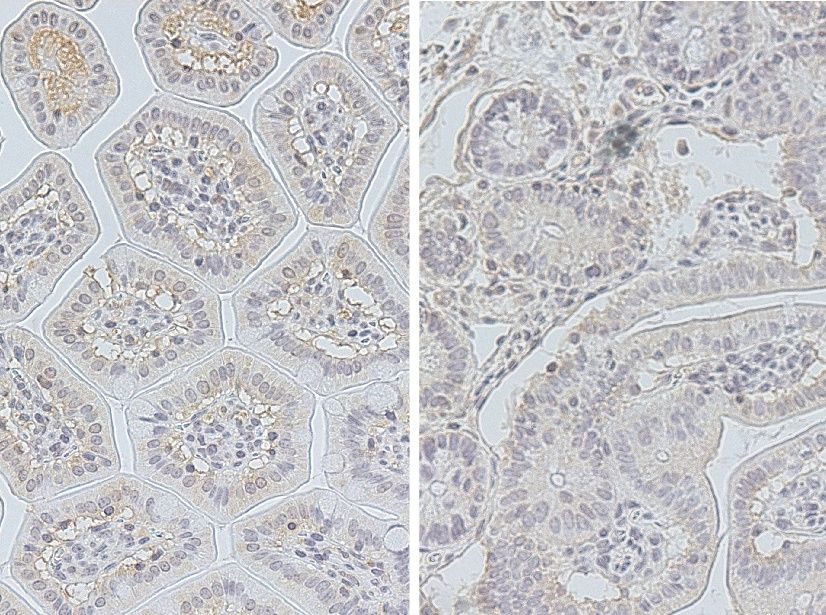QIAGEN completes second U.S. submission for companion diagnostic to guide treatment decisions in colorectal cancer
QIAGEN announced it has completed its second U.S. submission of the therascreen® KRAS RGQ PCR Kit for use as a companion diagnostic paired with Erbitux® (cetuximab), a drug for treatment of patients with metastatic colorectal cancer (mCRC). Erbitux is marketed in the United States by Bristol-Myers Squibb Company and Eli Lilly and Company. Merck KGaA has the right to market Erbitux outside the US and Canada.
QIAGEN submitted a Premarket Approval (PMA) application to the FDA for use of its innovative assay in determining which patients can be expected to benefit from Erbitux in treatment of mCRC. The first submission of the KRAS assay, earlier in July, paired QIAGEN’s molecular test with another drug for treatment of metastatic colorectal cancer. Both therapies are monoclonal antibody EGFR inhibitors expected to target a range of cancers. Last year’s sales of Erbitux were US$820 million, representing an 18 percent increase over 2009.
The therascreen KRAS assay reliably detects mutations of the KRAS gene, which are frequently found in human cancers. Because monoclonal antibody EGFR inhibitors are highly effective in colorectal cancer patients who do not have these KRAS mutations, the QIAGEN assay enables physicians to predict which patients are likely to respond and to avoid the costs and harmful patient side effects of ineffective treatment. About 60 percent of all colorectal cancer patients have a non-mutated KRAS gene, while about 40 percent of patients show mutations that make their cancers unresponsive to this class of drugs. According to the National Cancer Institute, over 1 million patients in the U.S. were diagnosed with mCRC in 2010.
“QIAGEN’s Personalized Healthcare franchise achieved a double milestone with these two separate U.S. submissions. These innovations show important progress in our strategy to accelerate QIAGEN’s growth in 2012 and beyond. We are planning to validate the KRAS assay on our QIAsymphony RGQ platform, and we expect approvals of both PMAs in 2012,” said Peer Schatz, Chief Executive Officer. “The value of the information generated by our cutting-edge KRAS technology points to the significant potential of companion diagnostics, both to improve healthcare for patients and to save money. Experts have estimated that using KRAS testing in colorectal cancer patients could save healthcare systems more than $600 million in drug costs alone.”
QIAGEN’s PMA submissions follow the FDA’s issuance of guidelines for the co-development and approval of drugs and associated companion diagnostics on July 14, 2011. The agency encourages the use of personalized medicines that rely on approved or cleared companion diagnostic devices. Without approval or clearance, the FDA sees tests as a potential public risk due to lack of adequate proof of accuracy and of well-controlled manufacturing processes. The guidelines recommend that in future drug labeling bears a reference to a type of FDA approved or cleared test so that only an approved or cleared companion diagnostic could be used to guide treatment decisions. QIAGEN is a pioneer in developing the PMA approach for the approval of companion diagnostics such as the KRAS assays.
Most read news
Other news from the department research and development

Get the life science industry in your inbox
By submitting this form you agree that LUMITOS AG will send you the newsletter(s) selected above by email. Your data will not be passed on to third parties. Your data will be stored and processed in accordance with our data protection regulations. LUMITOS may contact you by email for the purpose of advertising or market and opinion surveys. You can revoke your consent at any time without giving reasons to LUMITOS AG, Ernst-Augustin-Str. 2, 12489 Berlin, Germany or by e-mail at revoke@lumitos.com with effect for the future. In addition, each email contains a link to unsubscribe from the corresponding newsletter.
Most read news
More news from our other portals
Last viewed contents






















































